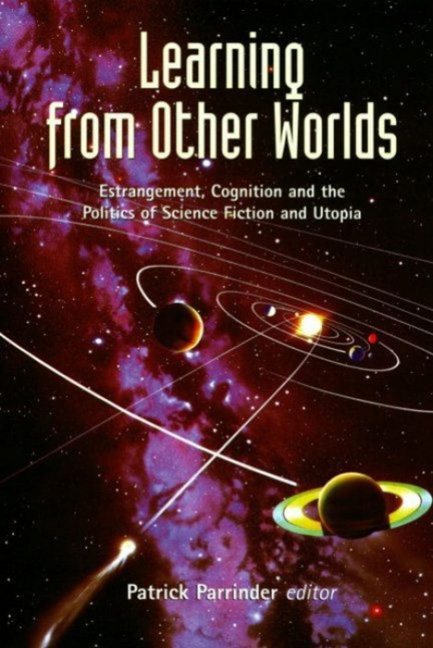Book contents
- Frontmatter
- Contents
- Acknowledgements
- Contributors
- Introduction: Learning from Other Worlds
- Part I Science Fiction and Utopia: Theory and Politics
- Before the Novum: The Prehistory of Science Fiction Criticism
- Revisiting Suvin's Poetics of Science Fiction
- ‘Look into the dark’: On Dystopia and the Novum
- Science Fiction and Utopia: A Historico-Philosophical Overview
- Society After the Revolution: The Blueprints for the Forthcoming Socialist Society published by the Leaders of the Second International
- Part II Science Fiction in its Social, Cultural and Philosophical Contexts
- Afterword: With Sober, Estranged Eyes
- Darko Suvin: Checklist of Printed Items that Concern Science Fiction (with Utopian Fiction or Utopianism, and a Few Bordering Items)
- Bibliography
- Index
Science Fiction and Utopia: A Historico-Philosophical Overview
from Part I - Science Fiction and Utopia: Theory and Politics
- Frontmatter
- Contents
- Acknowledgements
- Contributors
- Introduction: Learning from Other Worlds
- Part I Science Fiction and Utopia: Theory and Politics
- Before the Novum: The Prehistory of Science Fiction Criticism
- Revisiting Suvin's Poetics of Science Fiction
- ‘Look into the dark’: On Dystopia and the Novum
- Science Fiction and Utopia: A Historico-Philosophical Overview
- Society After the Revolution: The Blueprints for the Forthcoming Socialist Society published by the Leaders of the Second International
- Part II Science Fiction in its Social, Cultural and Philosophical Contexts
- Afterword: With Sober, Estranged Eyes
- Darko Suvin: Checklist of Printed Items that Concern Science Fiction (with Utopian Fiction or Utopianism, and a Few Bordering Items)
- Bibliography
- Index
Summary
Thomas More's neo-Greek coinage utopia is one of the most successful such inventions in linguistic history; merely to list and discriminate among the major uses of the term and the various senses that it has been made to bear would require a substantial book. For my current purposes, however, there are three distinct (though related) meanings of main importance: in chronological order, a generic meaning, a political-economic meaning and a philosophical and hermeneutic meaning. The chief burden of this overview will be to investigate the critical relationship between science fiction and utopia by co-ordinating each of these senses of the latter term with science fiction as understood in the canonical Suvinian sense: that is, as the literature of cognitive estrangement, as the critical genre par excellence.
Generically, of course, utopia refers to the form invented in 1516 (almost exactly three centuries before Frankenstein, the founding text of SF) when More published Utopia; and the form has been at least intermittently popular ever since. There is no question here of even a very brief survey of the genre, but it is worth noting that there is probably no other comparably abundant literary kind that can be traced so unambiguously—and often explicitly—to a single text. In Gulliver's Travels (1726)—probably the finest utopian work produced in the two centuries after More—Swift is careful to include overt mention of his precursor in the prefatory letter;1 and a number of later authors have recorded their direct debt in their very titles: for example Wells's A Modern Utopia (1905); William Morris's News from Nowhere (1890), in which More's neo-Greek is translated into English; Samuel Butler's Erewhon (1872), in which More's term is translated and then scrambled; and, much more recently, Ursula Le Guin's The Dispossessed (1974), which is subtitled ‘An Ambiguous Utopia’. As the example of Le Guin suggests, utopias today are typically written within an explicitly science-fictional context.
The second, political-economic sense of utopia is doubtless less familiar to most readers. It refers mainly to the polemical writings of Marx and Engels in which the founders of historical materialism deprecate certain alternative conceptions of socialism as ‘utopian’, in contrast to their own scientific version.
- Type
- Chapter
- Information
- Learning from Other WorldsEstrangement, Cognition, and the Politics of Science Fiction and Utopia, pp. 72 - 97Publisher: Liverpool University PressPrint publication year: 2000



